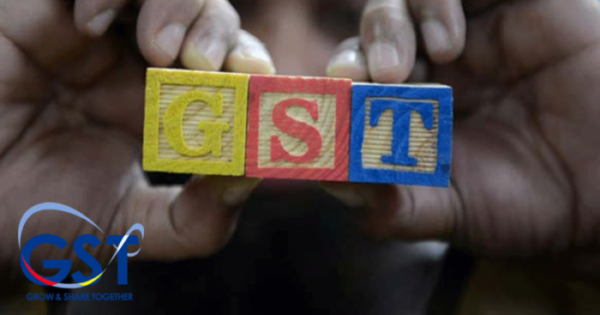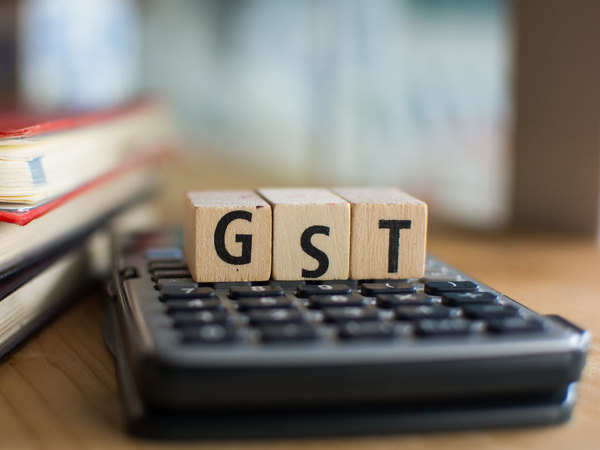1. Introduction:
In this article we would deliberate on certain issues which the tax payers face while making compliance with the provisions of TDS under GST Law. Before starting let us briefly discuss about the TDS provisions.
As per Section 51(1) of the CGST Act, 2017 read with Notification No. 50/2018 – Central Tax dated 13-09-2018, following persons (deductors) need to deduct tax at source.
a. department or establishment of the Central Government or State Government; or
b. local authority; or
c. Governmental agencies; or
d. an authority or a board or any other body, –
(i) set up by an Act of Parliament or a State Legislature; or
(ii) established by any Government,
with 51% or more participation by way of equity or control, to carry out any function;
e. Society established by the Central Government or the State Government or a Local Authority under the Societies Registration Act, 1860;
f. public sector undertakings.
The tax is required to be deducted from 01-10-2018, @1% (CGST and SGST each for intra-State supply) and @ 2% (IGST for inter-State supply) of the payment made to the supplier (the deductee) of taxable goods or services or both, where the total value of such supply, under a contract, exceeds Rs 2,50,000/- (excluding the amount of CGST, SGST/ UTGST, IGST and cess indicated in the invoice).
However no deduction shall be made if the location of the supplier and the place of supply is in a State or Union territory which is different from the State, or as the case may be, Union territory of registration of the recipient.
Further no TDS is required in cases of supplies on which reverse charge mechanism applies or supplies received from unregistered persons.
2. Whether TDS under GST applicable on provisions / liabilities?
In order to answer this question the deductors need to identify what is the ‘time of tax deduction’ so that they can deduct tax, deposit the same and file returns accordingly.
As per Sec 51(1) of the CGST Act, 2017 which is the charging section as regards TDS under GST law is concerned, tax is required to be deducted from the payment made or credited to the ‘supplier’ of taxable goods or services or both.
The above charging section clearly indicates that tax is required to be deducted from the payment made or credited to the supplier. Thus, the time of deduction would be the date on which payment is made or credited to the supplier. Accordingly, date of contract/ order, date of supply or date of invoice or date of provision / liability created in books is not relevant in determining the time of tax deduction. Now let us understand what is meant by ‘payment made or credited to the supplier’.
2.1 Meaning of payment made or credited to the supplier
No specific definition or explanation has been provided in Section 51 in regard to expression ‘payment made or credited’. Thus, we shall examine the same in common legal parlance. ‘Payment made’ means payment is actually made in cash or by issue of a cheque or draft or electronic transfer of funds or other modes. Now we come to expression ‘credited’. Here we face dual interpretations one being it refers to payment credited in the bank account of the supplier and second being amount is credited to the ledger account of the supplier maintained in the books of accounts.
Comparision with provision under Income Tax Act
In order to demystify the above doubt, let us compare the provision of GST law with the TDS provision of Section 194C of the Income Tax Act, 1961 which is given below:
194C. (1) Any person responsible for paying any sum to any resident for carrying out any work in pursuance of a contract between the contractor and a specified person shall, at the time of credit of such sum to the account of the contractor or at the time of payment thereof in cash or by issue of a cheque or draft or by any other mode, whichever is earlier, deduct an amount equal to…………………
From above Section it is evident that under Income Tax Act, time of deduction of tax is at time of credit of sum to the account (ledger account) of the contractor or at the time of payment, whichever is earlier.
Credit means credit to Bank Account of supplier
After going through the above provision of Income Tax Act, 1961 we can interpret that in case the term ‘credited’ referred to the credit of account of the contractor in the books, similar language as in Income Tax Act could have been used under Section 51. Further the term payment prefixes made or credited and therefore the word credited cannot be interpreted in isolation and same would mean payment credited.
Thus, on basis of above discussion, we can safely conclude that the term ‘credited’ means credit in Bank Account of the supplier and not credit in ledger account of supplier maintained in books of deductor for creating of liability.
Thus‘payment made or credited to the supplier’refers to the actual payment made by the deductor to the supplier and in case there is gap between payment made and actual credit in bank account of the supplier which would be normal in cases the payment is made by cheque, the earlier of two dates will be the time of deduction of tax at source.
It may also be noted the time of tax deduction cannot be after issue of cheque in view of the fact that cheque will be prepared only after passing and verification of invoice. Any tax that is required to be deducted will have to be deducted from the invoice at the time of bill passing and only after the bill is passed and necessary voucher is created, a cheque will be generated.
Further it may be noted here that in case of Government Departments / bodies / PSUs normally all the payments are now being made through electronic remittance as per CVC guidelines and accordingly there is no gap between date of remittance and date of credit in bank account of supplier and therefore date of payment made or payment credited is the same.
Let us apply the above understanding by way of some illustrations:
Illustration I:
A Department of Government entered into contract with a supplier of goods. The particulars are as under.
| Date of Contract | 01-08-2019 |
| Date of supply | 02-10-2019 |
| Date of Invoice | 02-10-2019 |
| Date of payment by Cheque | 10-11-2019 |
| Date of clearance of cheque and credit in Bank Account of supplier | 11-11-2019 |
In above case, the date of contract, date of supply, date of invoice will be disregarded as they are not the relevant dates for deriving the time of deduction of tax. We are left with two dates namely date of payment by cheque (10-11-2019) and date of credit of payment in Bank Account of supplier (11-11-2019). In such a situation as a deductor we can take the earlier of two dates as the time of deduction of tax which in this case will be 10-11-2019.
Illustration II:
A Public Sector Undertaking entered into contract with a supplier of goods. The particulars are as under.
| Date of Contract | 01-08-2019 |
| Date of supply | 02-10-2019 |
| Date of Invoice | 02-10-2019 |
| Date of creation of liability in books | 31-10-2019 |
| Date of electronic remittance and credit in Bank Account of supplier. | 10-12-2019 |
In above case, the date of contract, date of supply, date of invoice, date of creation of liability in books will be disregarded as they are not the relevant dates for deriving the time of deduction of tax. Accordingly,the time of deduction of tax which in this case will be 10-12-2019.
Accordingly from above it is evident that tax is not required to be deducted under GST Law on the provisions or even liabilities created in the books of the accounts and rather the TDS liability shall be triggered upon payment towards these amounts.
3. Whether advance payments would be subject to TDS under GST Law
In case advance payment is made without receiving any supply, it shall still be subject to tax deduction as payment has actually been made or credited to the supplier.
It is important to note here that Section 51 of the CGST Act, 2018 nowhere states that supply should have actually been received and merely states that deduction of tax would be required on payment or credit made to supplier of taxable goods or services.
The view that advance payments would be subject to TDS is also corroborated from the para 3.1 (f) of SOP on TDS issued by Law Committee , GST Council , which states that tax is required to be deducted when advance is paid to a supplier on or after 01.10.2018 to a supplier for supply of taxable goods or services or both.
Let us understand the above point by way of an illustration:
Illustration
A Department of Government entered into contract with a supplier of services. The particulars are as under.
| Date of Contract | 01-08-2019 |
| Date of advance payment | 05-10-2019 |
| Date of supply | 02-12-2019 |
| Date of Invoice | 12-12-2019 |
In this case as advance payment has been made on 05-10-2019, the time of deduction of tax on such advance payment will be 05-10-2019. It may be noted here that in case after supply some balance amount is paid, the same shall also be subject to deduction of tax on such balance payment and time of deduction would be the date on which such balance payment is made.
4. Tax deduction at time of payment and not otherwise is corroborated from GSTR-7
It may be noted here that as per Section 39(3) of the CGST Act, 2017 read with Rule 66 of the CGST Rules, 2017, every tax deductor is required to furnish a monthly return for tax deducted at source in FORM GSTR-7. If we see column 2, table 3 of this form we find the column of ‘Amount paid to the deductee on which tax is deducted’ which corroborates the view that tax is not required to deducted on provisions / liability created in books whose payment has not been made.
Further it also makes it clear that advance payments will also be subject to TDS as no invoice number etc has been asked for.
For ready reference the relevant extract of FORM GSTR-7 is given as under:

5. Concluding remarks
The requirement of TDS under GST Law viz Section 51 of the CGST Act, 2017 shall be triggered only upon payment to the deductee, accordingly no tax deduction is required to be made on provisions or liability created in the books of accounts. However advance payments to contractors for supply of taxable goods or services will be subject to TDS under GST Law.
***
[rainbow]Don’t miss the next GST Update / Article / Judicial pronouncement[/rainbow]
Subscribe to our newsletter from FREE to stay updated on GST Law
Resolve your GST queries from national level experts on GST free of cost.
Frah Saeed is a law graduate specializing in the core field of indirect taxes and is the Co-founder of taxwallah.com. She has authored many publications on GST and is into full-time consultancy on GST to big corporates. She as a part of taxwallah.com heads a team comprising of Chartered Accountants and Advocates and plays a key role in our mission to disseminate GST knowledge to all.




